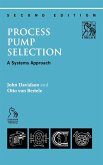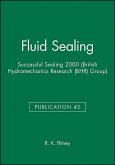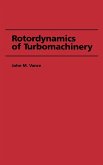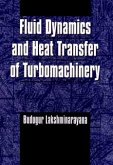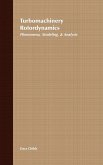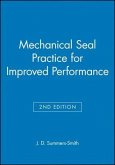Written by an author who has devoted the past twenty-five years of his life to studying and designing shock wave engines, this unique book offers comprehensive coverage of the theory and practice of shock wave engine design. The only book treating the complete preliminary design of shock wave engines, it provides engineers with practical step-by-step guidelines applicable to the design and construction of small, light- weight, low-powered industrial turbines as well as high performance jet aircraft engines. In his discussions of the advantages and disadvantages of shock wave versus other types of combustion engines, Dr. Weber demonstrates how and why shock wave engines can be made to work more efficiently than conventional gas turbines. Among other things, he shows quantitatively why combustion temperatures can be significantly higher in shock wave engines than conventional gas turbines. He evaluates temperatures of moving parts in terms of combustion and engine inlet temperatures, and explores the effect of shock coalescence, expansion fan reflections and intersections on port sizes and locations. And throughout, real and imagined performance problems are posed and proven solutions given for shock wave engines--alone and in conjunction with conventional gas turbines or reciprocating internal combustion engines. Designed to function as a practical guide, Shock Wave Engine Design offers concise step-by-step design techniques in a readily usable format. Engineers will find precise, detailed directions on such essentials as how to size wave rotor blade lengths and heights and the correct rotor diameter for a specified power, and material selection for rotor and stator. And one entire chapter (Chapter 12) is devoted exclusively to a detailed example design for a 500 hp engine. An authoritative, highly practical guide to state-of-the-art shock wave engine design, this book is an important resource for mechanical and aerospace engineers who design aircraft engines or virtually any type of turbomachinery. Timely, authoritative, practical--an important resource for engineers who design aircraft engines or virtually any type of turbomachinery Written by a pioneer in the field, this book offers a comprehensive coverage of state-of-the-art shock wave engine design principles and techniques. The only book treating the complete preliminary design of shock wave engines, this unique guide provides engineers with: * Concise step-by-step guidelines applicable to the design and construction of small, lightweight, low-powered industrial turbines as well as high-performance jet aircraft engines * In-depth treatments of pressure exchangers, wave engines, and wave engines compounded with reciprocating IC engines * A chapter-length example design for a 500 hp engine * A brief but thorough review of all essential thermodynamics and gas dynamics needed to develop flow equations and calculation methods
Hinweis: Dieser Artikel kann nur an eine deutsche Lieferadresse ausgeliefert werden.
Hinweis: Dieser Artikel kann nur an eine deutsche Lieferadresse ausgeliefert werden.



